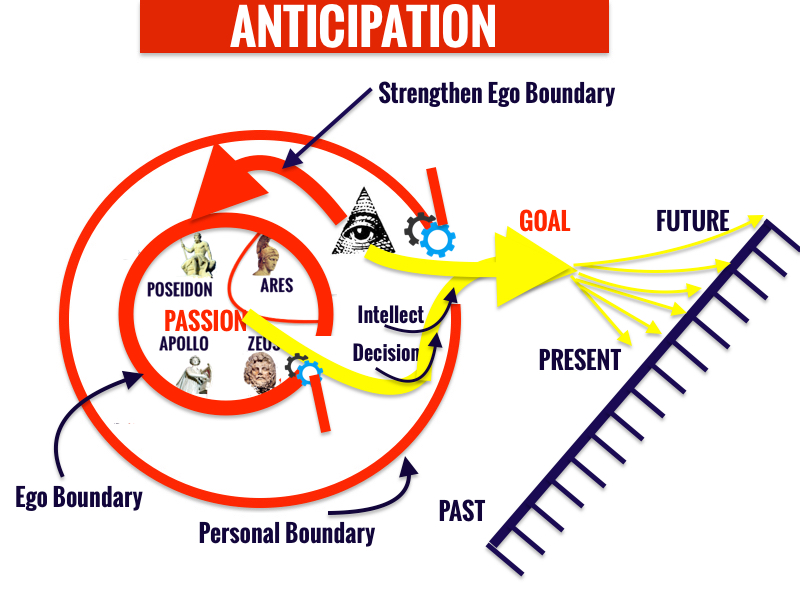There is a great deal of sound financial advice out there for the young starting out in the workforce. The “Millionaire Calculator” at timevalue.com estimates that if at a 2.3% return rate and 25% income tax rate, you were to save about 2000$/month for the next 30 years, you would have a million dollars.
Taking this idea of altruism further in its financial implications, we consider the role of having a view to the future as a mature defense mechanism and virtue of character. In terms of boundaries, you might see it as an extension of the knowledge of what we currently control and don’t control about life. This gives rise to the concept of even having future goals in the first place. Through goals, what we do not control now, we may in the future.
Think about it this way. If you were a person with holes in your boundary aplenty, you’d feel quite a sense of entitlement in the social world, because you wouldn’t see your limits or personal ownership of what you possess - always feeling as if others owe you their resources, and a “free ride.” When you would encounter people who are less than blindly generous, you might feel offended, and when you encounter hardship, you’d expect others to step in and manage the lack for you. After all, you may have been raised to feel as if you should be paid by society “just for being fabulous.”
It would be a harsh reality to wake up one day to how destructive this perspective is in terms of reciprocal altruism and kinship with others. Without your realizing it, the givers around you would eventually tire of giving without receiving, and you would eventually have to start making your way in the world without much skill to do so, since you have been waiting to be served for all this time.
Anticipation is the opposite of this perspective, where you are taken by surprise by the reality that we have to be self-sustaining first to be on a team of two, or a team of twenty. The group we belong to, the family we were born into, and the marriage we have joined will not tolerate us being an eternal free rider. Anticipation already has a respect for this reality, and sees beyond that boundary edge where we don’t control that environment outside ourselves. Then it plans and plots for a savvy use of the resources we now have, to move toward a future that is successful in reaching goals. When we do, the boundary expands.
In order to do this, we have to have the capacity to restrain our own urges and instant gratifications, the products we would like to buy and the money, time and energy we would enjoy squandering. The boundary outside helps us plot the future goals and the “ego boundary” inside helps us curtail the impatient, urgent impulses of the unconscious, reptilian brain.
If intellectual attraction on a team is about this kind of strategic, wise, future planning of goals, then anticipation as a defense mechanism and virtue is a must. We can’t make it through the stresses of life, encumbered by a partner who is always surprised by the next crisis around the corner.


